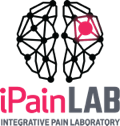Alert Fatigue in Hospitals
Medication prescribing errors are among the most common and preventable types of errors in hospitalized patients, leading to significant morbidity, mortality, and healthcare costs. Computerized Physician Order Entry (CPOE) systems, combined with Clinical Decision Support Systems (CDSS), can reduce these errors by approximately 50%. CDSS provides alerts for drug-allergy checks, dosing adjustments, duplicate therapies, drug-drug interactions, and more, helping clinicians identify critical issues.
However, excessive alerts can lead to “alert fatigue,” where important warnings are overlooked due to an overwhelming number of notifications. Even 12 alerts per day in a busy clinic can cause clinicians to disregard over 90% of them, reducing CDSS effectiveness.
Relevance is key. When presented with irrelevant alerts, clinicians are more likely to ignore all alerts, including crucial ones. Customizing alerts to each hospital department’s needs can reduce unnecessary notifications and focus on actionable alerts that influence care.
Combatting alert fatigue requires thoughtful alert categorization:
- Does an alert require immediate action?
- Can the alert notify without disrupting workflow?
- Are there valid reasons to override the alert?
Continuous review and optimization of CDSS, informed by data on alert trends, override rates, and clinician responses, are essential to maintaining their effectiveness. The goal is to balance safety and alert volume, ensuring CDSS supports clinical decisions while minimizing alert fatigue.
Our study focuses on the impact of CDSS customization and how it affects drug prescribing errors and alert fatigue, aiming to improve patient safety through effective alert management.


